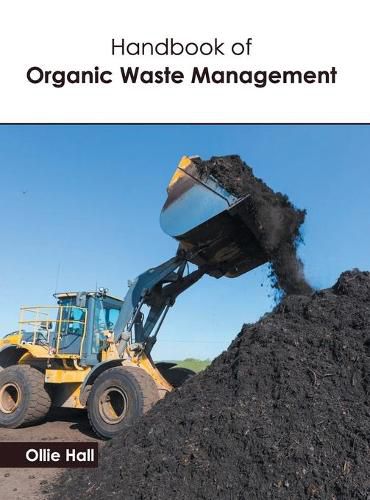Readings Newsletter
Become a Readings Member to make your shopping experience even easier.
Sign in or sign up for free!
You’re not far away from qualifying for FREE standard shipping within Australia
You’ve qualified for FREE standard shipping within Australia
The cart is loading…






This title is printed to order. This book may have been self-published. If so, we cannot guarantee the quality of the content. In the main most books will have gone through the editing process however some may not. We therefore suggest that you be aware of this before ordering this book. If in doubt check either the author or publisher’s details as we are unable to accept any returns unless they are faulty. Please contact us if you have any questions.
Organic waste refers to the waste that can be broken down into carbon dioxide, methane, water or simple organic molecules by the action of micro-organisms or other living things. This is possible through the processes of anaerobic digestion, aerobic digestion or composting. Some common examples of organic waste are manure, sewage, slaughterhouse waste, human waste, green waste, food waste, sewage sludge, biodegradable plastics and paper waste. Organic waste materials along with other wastes are disposed in landfills and incinerators. Since they are biodegradable they can also be used for land application and composting. Certain organic substances such as cardboard and paper are used for recycling. Biogas can also be produced from organic waste and used as a source of heat and electricity. This book studies, analyzes and upholds the pillars of organic waste management and its utmost significance in modern times. It is compiled in such a manner, that it will provide in-depth knowledge about the theory and practice of this area of study. It aims to serve as a resource guide for students and experts alike and contribute to the growth of the discipline.
$9.00 standard shipping within Australia
FREE standard shipping within Australia for orders over $100.00
Express & International shipping calculated at checkout
This title is printed to order. This book may have been self-published. If so, we cannot guarantee the quality of the content. In the main most books will have gone through the editing process however some may not. We therefore suggest that you be aware of this before ordering this book. If in doubt check either the author or publisher’s details as we are unable to accept any returns unless they are faulty. Please contact us if you have any questions.
Organic waste refers to the waste that can be broken down into carbon dioxide, methane, water or simple organic molecules by the action of micro-organisms or other living things. This is possible through the processes of anaerobic digestion, aerobic digestion or composting. Some common examples of organic waste are manure, sewage, slaughterhouse waste, human waste, green waste, food waste, sewage sludge, biodegradable plastics and paper waste. Organic waste materials along with other wastes are disposed in landfills and incinerators. Since they are biodegradable they can also be used for land application and composting. Certain organic substances such as cardboard and paper are used for recycling. Biogas can also be produced from organic waste and used as a source of heat and electricity. This book studies, analyzes and upholds the pillars of organic waste management and its utmost significance in modern times. It is compiled in such a manner, that it will provide in-depth knowledge about the theory and practice of this area of study. It aims to serve as a resource guide for students and experts alike and contribute to the growth of the discipline.